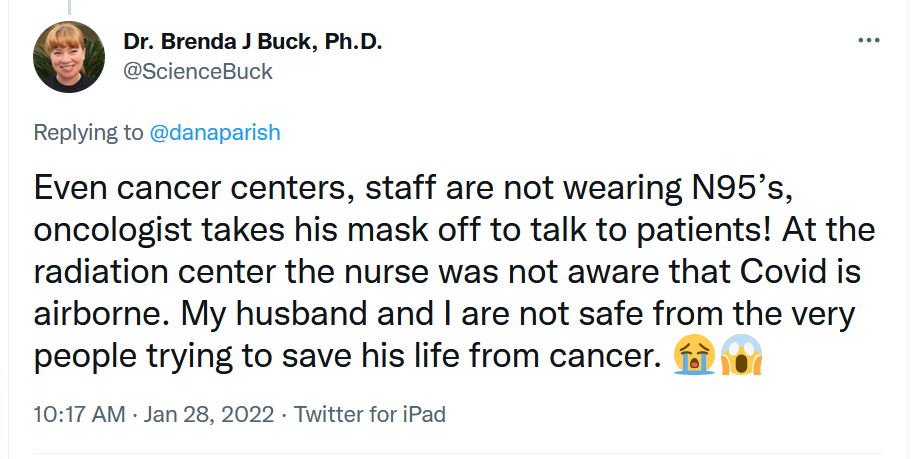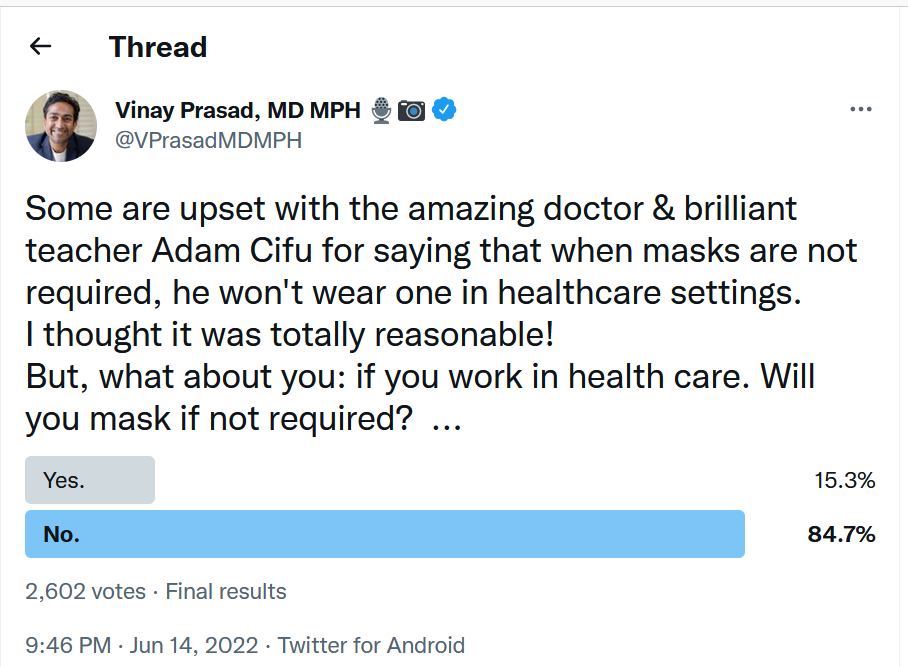When Masking Is Mandated but Not Enforced
Many cancer centers have kept universal mask mandates in place throughout the pandemic.
“At City of Hope, we have had a consistent policy of masking in clinical spaces since March of 2020. This has not changed,” Leo Wang, MD, a pediatric hematologist/oncologist at City of Hope in Duarte, California, said in an interview.
Dr Wang said that all patients and staff at City of Hope must wear at least a surgical mask in buildings accessible to patients, and all staff must be vaccinated unless they have a medical or religious exemption. For unvaccinated staff, an N95 mask is required.
The American Cancer Society (ACS) does not have an official position on masking. However, the organization mandates masking “in all the places that cancer patients aggregate that are affiliated with the ACS,” explained Arif Kamal, MD, chief patient officer at the ACS.
“We hope that our behavior serves as a model example for others,” said Dr Kamal, who is also an oncologist at Duke Cancer Center in Durham, North Carolina, where masks are required for patients and employees.
“It really takes both parties to reduce the risk for a person who’s at increased risk of severe COVID-19,” Dr Kamal said. “We believe very strongly that cancer patients and their caregivers should be wearing masks and that it is an important sign of safety and respect that others around them try to do that as well.”
Patients have reported that, despite mask mandates, some cancer center visitors and staff do not wear masks properly, potentially exposing patients to SARS-CoV-2.
On Twitter, Dawn V. Wollen posted about a situation in which a visitor would not wear a mask above his nose, and cancer center employees refused to intervene. @SueSueCurious recounted how an oncologist was doubled-masked during an appointment, but “pulled both masks away from his face multiple times while speaking.”

Are Surgical Masks Sufficient?
Some patients have called for universal use of N95, elastomeric, or other high-filtration masks in health care settings, saying surgical masks do not offer adequate protection. Research has suggested that N95s can provide better protection than surgical masks, and elastomeric masks can provide better protection than N95s.21,22
Patients have also reported that, at some cancer centers, they’ve been asked to remove their higher-filtration masks in favor of a surgical mask. Twitter user @CalistaMueller reported having to swap an N95 for a surgical mask while undergoing cancer treatment in April.
User @msun_12 lamented that Memorial Sloan Kettering Cancer Center in New York requires surgical masks, which are “not enough” and “not in line with CDC indoor mask recommendations.”
The CDC’s website states that health care facilities “may choose to offer well-fitting face masks as a source control option for visitors but should allow the use of a clean mask or respirator with higher-level protection by people who chose that option based on their individual preference.”23
Cancer centers asking patients to swap out higher-filtration masks for surgical masks should adopt policies that are “a little more sensible,” according to Dr Shanahan.
“So if you are wearing a cloth mask, you need to put on a surgical mask,” she said. “But if someone walks in with a surgical mask, or an N95 kind of thing, [the staff should] think a little more and just say, ‘Your mask is fine.’”
When Providers Are Against Masking
Some oncologists and other health care providers have questioned the effectiveness of masking and criticized mask mandates.
“The mask & vaccine mandates are doing far more harm than good,” Nicole B. Saphier, MD, wrote on Twitter in February. Dr Saphier is director of breast imaging at Memorial Sloan Kettering Monmouth in Middletown, New Jersey.
Vinay Prasad, MD, a hematologist/oncologist and associate professor at the University of California San Francisco, has also been a vocal opponent of mask mandates, questioning the results of masking studies and calling it “bad public health advice” to recommend wearing N95 masks after COVID-19 vaccination.
In a poll Dr Prasad conducted on Twitter, a majority of respondents who claimed to work in health care settings said they would not wear masks if mandates were dropped.

Staff at Houston Methodist responded positively when the universal mask mandate was lifted there,6 according to Zabaneh.
“We didn’t hear any negative feedback at all,” Zabaneh said. “Our staff liked the idea. It gave them hope.”
This article originally appeared on Cancer Therapy Advisor